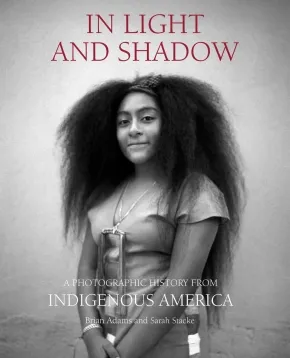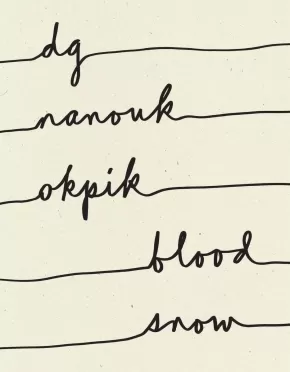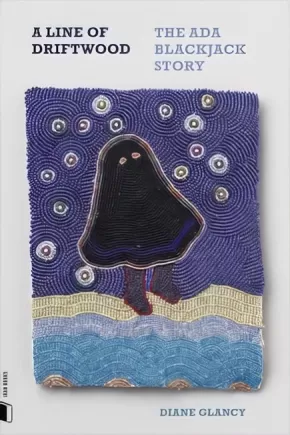
Inupiat
1
-
3
of
3 Results;
Sort By
In Light and Shadow: A Photographic History from Indigenous America
$51.00
Artists:
Format:
Hardcover
Text Content Territories:
Indigenous Canadian; Indigenous American; Indigenous Polynesian; Indigenous Hawaiian;
Reading Level: N/A
ISBN / Barcode: 9780762482467
Synopsis:
Synopsis:
A landmark photography collection featuring work exclusively by Indigenous Americans, shedding new light on the understanding of Indigenous America.
The history of photography–and the Americas–is incomplete without the critical work and perspectives of Indigenous American photographers. Since the 1800s, cameras have been in the hands of Indigenous people and they have incorporated photography into their lives as creators, patrons, and collectors.
Five years ago, photographers Brian Adams and Sarah Stacke set off on a mission to assemble a groundbreaking, digital library of Indigenous photographers from the 19th century to the present. With In Light and Shadow: A Photographic History from Indigenous America, Adams and Stacke expand on that work, creating a one-of-a-kind collection of photographs that offers a first-hand look at the people, cultures, and evolving traditions of Indigenous America while providing a counterhistory to settler-colonial narratives.
From Jennie Fields Ross Cobb, the earliest known Indigenous American woman photographer, to Arhuaco documentarian Amado Villafaña Chaparro, through Kapuleiikealoonalani Flores, a Native Hawaiian who was born in 2000, the photographers span many generations as well as multiple Indigenous societies and nations. Each entry includes a biographical sketch of the artist, along with their inspirations and contributions to the photographic medium.
With profiles of 80 photographers and more than 250 photographs, this unique book brings to light the canon of Indigenous American photography that has been developing on its own terms for decades.
Additional Information
304 pages | 8.50" x 10.30" | 250 black-and-white and color photographs | Hardcover
Blood Snow
$27.95
Format:
Paperback
Text Content Territories:
Indigenous American; Alaska Native; Inupiat;
Reading Level: N/A
ISBN / Barcode: 9781950268634
Synopsis:
Synopsis:
American Book Award–winning poet dg okpik’s collection of poems, Blood Snow, tells a continuum story of a homeland under erasure, in an ethos of erosion, in a multitude of encroaching methane, ice floe, and rising temperatures.
Here, in a true Inupiaq voice, dg okpik’s relationship to language is an access point for understanding larger kinships between animals, peoples, traditions, histories, ancestries, and identities. Through an animist process of transfiguration into a Shaman’s omniscient voice, we are greeted with a destabilizing grammar of selfhood. Okpik’s poems have a fraught relationship to her former home in Anchorage, Alaska, a place of unparalleled natural beauty and a traumatic site of devastation for Alaskan native nations and landscapes alike. In this way, okpik’s poetry speaks to the dualistic nature of reality and how one’s existence in the world simultaneously shapes and is shaped by its environs.
Reviews
"Unlike poets who adopt cultures into which they weren't born, or raised, okpik, who has fished the waters of which she writes so eloquently, has something rare these days: an authentic voice, one that nets ancient beliefs without discarding modern science or the daily news."—Poetica
Additional Information
96 pages | 7.19" x 9.00" | Paperback
A Line of Driftwood: The Ada Blackjack Story
$24.50
Format:
Paperback
Text Content Territories:
Indigenous American; Alaska Native; Inupiat;
Reading Level: N/A
ISBN / Barcode: 9781933527215
Synopsis:
Synopsis:
In September 1921, a young Inupiat woman named Ada Blackjack traveled to Wrangel Island, 200 miles off the Arctic Coast of Siberia, as a cook and seamstress, along with four professional explorers. The expedition did not go as planned. When a rescue ship finally broke through the ice two years later, she was the only survivor.
Diane Glancy discovered Blackjack’s diary in the Dartmouth archives and created a new narrative based on the historical record and her vision of this woman’s extraordinary life. She tells the story of a woman facing danger, loss, and unimaginable hardship, yet surviving against the odds where four “experts” could not. Beyond the expedition, the story examines Blackjack’s childhood experiences at an Indian residential school, her struggles as a mother and wife, and the faith that enabled her to survive alone on a remote island in the Arctic Sea.
Glancy’s creative telling of this heroic tale is a high mark in her award-winning hybrid investigations of suffering, identity, and Native American history.
Reviews
“This is not a reconstruction; it is symbiosis as an act of respect and dignity. As Diane Glancy 'ventriloquizes' Ada into a truth of words—written, typed, spoken, thought—she speaks the paradoxical truth of acts of writing as self-witness: 'I am hurting when I am writing.’ Isolation becomes revelation. The spiritual driftwood becomes a testament of sacred connection and a claiming back of voice.”—John Kinsella
“The shifting of ice. Written letters become elk, an orange is a moon, an owl is a blank page, and the stunning survival in this Arctic landscape redefines the question, “What is rescue?” Diane Glancy hears the spirits, the words beneath the words. She knows the language of scars as she honors the life of Ada Blackjack in this visionary telling of the moving world.”—Jan Beatty
Additional Information
128 pages | 5.50" x 8.25" | Paperback
Sort By








